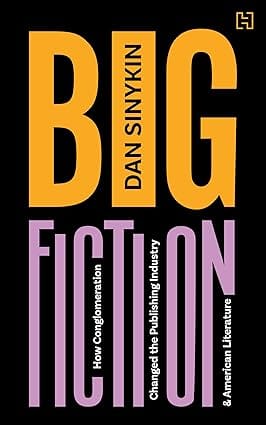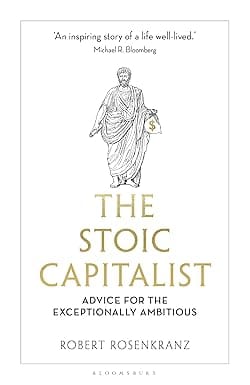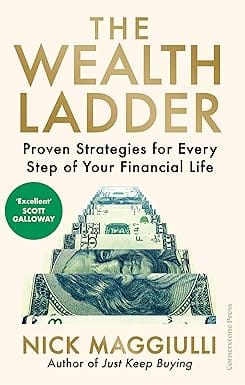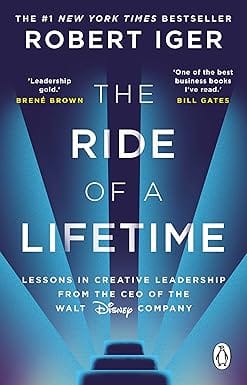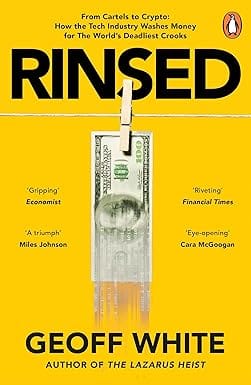-
Non-ficton
- Non-ficton
-
Contemporary Fiction
- Contemporary Fiction
-
Children
- Children
-
Comics & Graphic Novels
- Comics & Graphic Novels
-
Non-Fiction
- Non-Fiction
-
Fiction
- Fiction
In the late 1950s, Random House editor Jason Epstein would talk jazz with Ralph Ellison or chat with Andy Warhol while pouring drinks in his office. By the 1970s, editors were poring over profit-and-loss statements. The electronics company RCA bought Random House in 1965, and then other large corporations purchased other formerly independent publishers. As multinational conglomerates consolidated the industry, the business of literature–and literature itself–transformed.
Dan Sinykin explores how changes in the publishing industry have affected fiction, literary form, and what it means to be an author. Giving an inside look at the industry's daily routines, personal dramas, and institutional crises, he reveals how conglomeration has shaped what kinds of books and writers are published by examining four different sectors of the publishing industry: mass-market books; trade publishers that encouraged genre elements in literary fiction; nonprofits such as Graywolf; and the distinctive niche of employee-owned W. W. Norton.
Written in gripping and lively prose, and featuring vivid portraits of key industry figures, this deeply original book recasts the past six decades of American fiction.
Review
'Revelatory... Book lovers curious about how the proverbial sausage gets made will want to check this out.'–Publishers Weekly
'Big Fiction tackles a big subject with deep research, great ambition, and broad mindedness. Sinykin pulls together stories of famous authors and obscure yet central behind-the-scenes players to tell the complex and compelling history of modern publishing. This is essential reading for anyone interested in the too-often-overlooked forces that shape what is published, what is written, and what the future of books might hold.–Lincoln Michel, author of The Body Scout
'This book offers a rich, detailed background explicating the everyday reader's experience of why books published by big commercial presses seem so much like... books big commercial presses would publish... Any student of publishing would benefit from reading this book. In its pages, publishing seems fascinating and action-packed, but myths that readers might harbor about the industry's glamor, its sincerity, or the purity of its relationship to art will probably get dispelled.'”–Hilary Plum, Los Angeles Review of Books
'Sinykin writes with verve and narrative flair as he documents the consolidation of the major publishing houses– and, along the way, overturns the myth of "the romantic author," that lone genius unfettered by social circumstances or material constraints.... The result is a fascinating and informative account of the convulsions roiling the American publishing industry for the past half-century and a devastating reckoning with the ways in which conglomeration has altered American fiction.–Becca Rothfeld, Washington Post
'The fluency, anecdotes, and lightness with which Sinykin delivers what is clearly the product of rigorous research makes for a highly readable book.'–Alice Grundy, Sydney Review of Books
About the Author
Dan Sinykin is an assistant professor of English at Emory University with a courtesy appointment in quantitative theory and methods. He is the author of American Literature and the Long Downturn: Neoliberal Apocalypse (2020). His writing has appeared in the New York Times, the Washington Post, the Los Angeles Review of Books, The Rumpus, Dissent, and other publications.
9789357317030
- Home
- Non-Fiction
- Big Fiction How Conglomeration Changed The Publishing Industry And American Literature
Big Fiction How Conglomeration Changed The Publishing Industry And American Literature
SIZE GUIDE
- ISBN: 9789357317030
- Author: Dan Sinykin
- Publisher: Hachette India
- Pages: 520
- Format: Paperback
Book Description
In the late 1950s, Random House editor Jason Epstein would talk jazz with Ralph Ellison or chat with Andy Warhol while pouring drinks in his office. By the 1970s, editors were poring over profit-and-loss statements. The electronics company RCA bought Random House in 1965, and then other large corporations purchased other formerly independent publishers. As multinational conglomerates consolidated the industry, the business of literature–and literature itself–transformed.
Dan Sinykin explores how changes in the publishing industry have affected fiction, literary form, and what it means to be an author. Giving an inside look at the industry's daily routines, personal dramas, and institutional crises, he reveals how conglomeration has shaped what kinds of books and writers are published by examining four different sectors of the publishing industry: mass-market books; trade publishers that encouraged genre elements in literary fiction; nonprofits such as Graywolf; and the distinctive niche of employee-owned W. W. Norton.
Written in gripping and lively prose, and featuring vivid portraits of key industry figures, this deeply original book recasts the past six decades of American fiction.
Review
'Revelatory... Book lovers curious about how the proverbial sausage gets made will want to check this out.'–Publishers Weekly
'Big Fiction tackles a big subject with deep research, great ambition, and broad mindedness. Sinykin pulls together stories of famous authors and obscure yet central behind-the-scenes players to tell the complex and compelling history of modern publishing. This is essential reading for anyone interested in the too-often-overlooked forces that shape what is published, what is written, and what the future of books might hold.–Lincoln Michel, author of The Body Scout
'This book offers a rich, detailed background explicating the everyday reader's experience of why books published by big commercial presses seem so much like... books big commercial presses would publish... Any student of publishing would benefit from reading this book. In its pages, publishing seems fascinating and action-packed, but myths that readers might harbor about the industry's glamor, its sincerity, or the purity of its relationship to art will probably get dispelled.'”–Hilary Plum, Los Angeles Review of Books
'Sinykin writes with verve and narrative flair as he documents the consolidation of the major publishing houses– and, along the way, overturns the myth of "the romantic author," that lone genius unfettered by social circumstances or material constraints.... The result is a fascinating and informative account of the convulsions roiling the American publishing industry for the past half-century and a devastating reckoning with the ways in which conglomeration has altered American fiction.–Becca Rothfeld, Washington Post
'The fluency, anecdotes, and lightness with which Sinykin delivers what is clearly the product of rigorous research makes for a highly readable book.'–Alice Grundy, Sydney Review of Books
About the Author
Dan Sinykin is an assistant professor of English at Emory University with a courtesy appointment in quantitative theory and methods. He is the author of American Literature and the Long Downturn: Neoliberal Apocalypse (2020). His writing has appeared in the New York Times, the Washington Post, the Los Angeles Review of Books, The Rumpus, Dissent, and other publications.
User reviews
NEWSLETTER
Subscribe to get Email Updates!
Thanks for subscribing.
Your response has been recorded.

India's Iconic & Independent Book Store offering a vast selection of books across a variety of genres Since 1978.
"We Believe In The Power of Books" Our mission is to make books accessible to everyone, and to cultivate a culture of reading and learning. We strive to provide a wide range of books, from classic literature, sci-fi and fantasy, to graphic novels, biographies and self-help books, so that everyone can find something to read.
Whether you’re looking for your next great read, a gift for someone special, or just browsing, Midland is here to make your book-buying experience easy and enjoyable.
We are shipping pan India and across the world.
For Bulk Order / Corporate Gifting
 +91 9818282497 |
+91 9818282497 |  [email protected]
[email protected]
Click To Know More
INFORMATION
POLICIES
ACCOUNT
QUICK LINKS
ADDRESS
Shop No.20, Aurobindo Palace Market, Near Church, New Delhi

